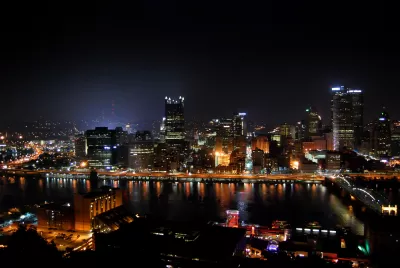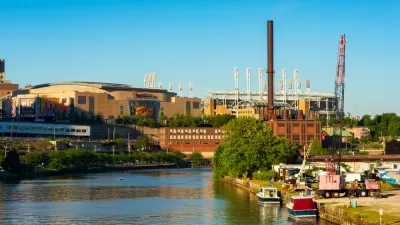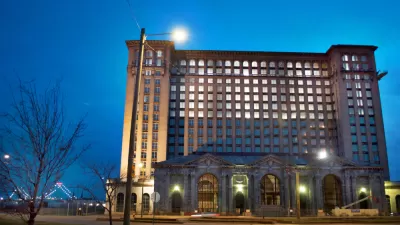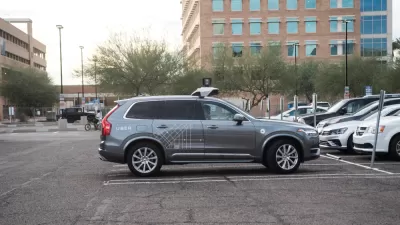When Uber announced this month that it would test-run its fleet of self-driving cars in the Steel City, many probably asked, "why Pittsburgh?" Unlike other post-industrial places, it's been incubating a 21st-century economy.

Earlier this month, Uber announced that Pittsburgh beat out places like Silicon Valley and Singapore to become the "first place in the world where people will be able to grab a ride in a robotic car."
Suffering from the usual litany of Rust Belt ills, the city has been quite successful in its struggle to revive. Angelo Young writes, "As the new century approached, city officials began to steer economic development toward education, health care and technology. The government of Pittsburgh took a lead role in nurturing more than a dozen public and private organizations with the aim of kick-starting businesses by providing seed funding, office space and networking opportunities."
Notably, "Pittsburgh's home prices are rising and the city's population increased last year for the first time in six decades."
The new wave of startups and incubators is reviving the economy, but not for everyone. In many ways, the city remains an example of post-industrial fatigue. "Home prices are rising but this also hurts local lower-income earners. Unemployment in the area is 5.5 percent, according to the state's Department of Labor and Industry, significantly above the national 4.9 percent average and higher than the state's average."
FULL STORY: Uber got this right — Pittsburgh is America’s city of the future

Alabama: Trump Terminates Settlements for Black Communities Harmed By Raw Sewage
Trump deemed the landmark civil rights agreement “illegal DEI and environmental justice policy.”

Planetizen Federal Action Tracker
A weekly monitor of how Trump’s orders and actions are impacting planners and planning in America.

Why Should We Subsidize Public Transportation?
Many public transit agencies face financial stress due to rising costs, declining fare revenue, and declining subsidies. Transit advocates must provide a strong business case for increasing public transit funding.

Phoenix Announces Opening Date for Light Rail Extension
The South Central extension will connect South Phoenix to downtown and other major hubs starting on June 7.

How Housing as a Financial Product Harms Communities
Institutional buyers who treat housing as an investment product become disconnected from the impacts of higher rents, displacement, and housing instability.

Blinded by the Light: When Brighter Headlights Decrease Safety
Bright LED headlights can create glare and reduce visibility for other drivers and pedestrians.
Urban Design for Planners 1: Software Tools
This six-course series explores essential urban design concepts using open source software and equips planners with the tools they need to participate fully in the urban design process.
Planning for Universal Design
Learn the tools for implementing Universal Design in planning regulations.
Caltrans
Smith Gee Studio
Institute for Housing and Urban Development Studies (IHS)
City of Grandview
Harvard GSD Executive Education
Toledo-Lucas County Plan Commissions
Salt Lake City
NYU Wagner Graduate School of Public Service





























